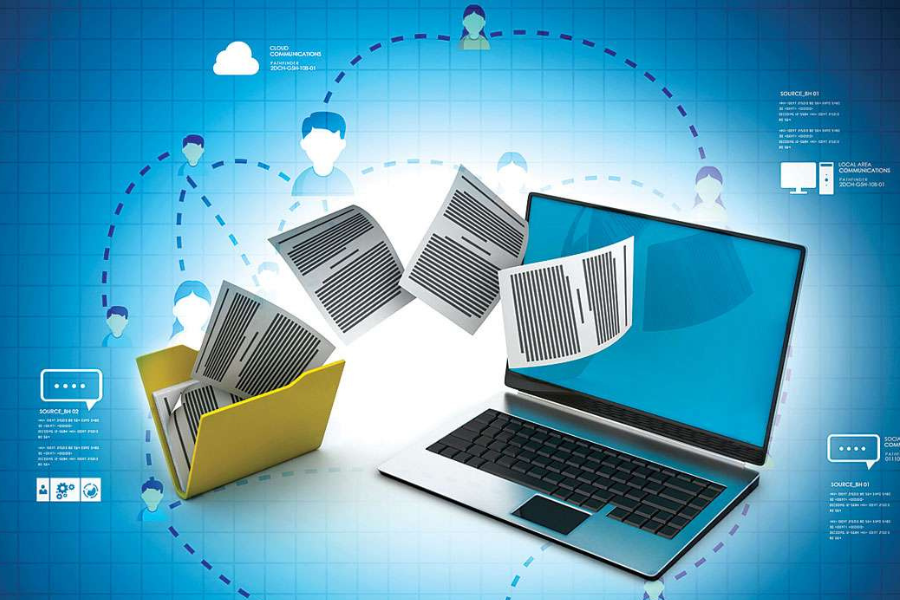In every structure and system, there arrives a watershed moment – a change that transforms it forever and for the better. For the securities market, it was the introduction of dematerialisation in the late 1990s.
The utilisation of demat accounts and demat securities certificates has made the process of investing in the market largely paperless, cost-effective, and seamless.
In this article, we shall discuss what is demat account, and what are the major pros and cons of holding demat share certificates and physical share certificates.
What Is A Demat Account
Just as your bank account holds your money in a digital format, your demat account stores your market-linked securities in a paperless or demat form. Following the execution of a buy order for, say, shares from the market, the requisite number of share certificates shall be deposited in your demat account.
Such certificates serve as a proof of your ownership of the securities thus purchased. You can open a demat account online. To do so, you must choose an authorised depository participant or stock broker, and complete the demat account opening process on their website.
What Are Physical Share Certificates
Physical share certificates are paper-based documents that serve as a proof of ownership of the shares of a particular company. If you opt for physical share certificates, you have to pay the applicable stamp duty for them.
It is worth noting here that you can convert your physical share certificates into demat share certificates by opening a demat account (if you do not have a functional demat account) and filling a Dematerialisation Request Form at your DP’s website.
Key Pros Of Having Demat Share Certificates
There are advantages aplenty of opting for demat share certificates, some of which are as follows:
- Safe storage: You do not have to worry about the safe storage of your demat share certificates or about potential damage or theft.
- Easy access: It is possible to access your demat share certificates at any time through your demat account. You need not search for physical files holding physical share certificates.
- Cost-effective: By opting for demat share certificates, you save several key charges, including stamp duty. What is more is that you do your bit in protecting the planet by reducing the usage of paper.
- Convenience in selling: It is easy to sell shares with demat certificates. All you have to do is access your demat account, raise an e-DIS for the shares you wish to sell, and place the sale order through the linked trading account.
Major Cons Of Having Demat Share Certificates
Although demat share certificates entail a host of advantages for investors, they have some lacunae, including
- Possibility of digital frauds: As is the case with any digital instrument, demat accounts are vulnerable to fraudulent access and authorised use. Such an event could risk your demat holdings.
- No paper-based proof of share ownership: When you hold shares in a demat form, you do not have the paper-based proof of ownership of days shares. If you prefer to have a physical documentary proof of your share ownership, demat share certificates may be inadequate for you.
Prominent Pros Of Having Physical Share Certificates Converted
There are some benefits of holding physical share certificates, such as
- Paper-based evidence of share ownership: With physical share certificates, you have a paper-based proof of your ownership of specific shares.
- No dependence on an online account for record checking: If you hold your shares in a physical form, you can check how many shares you hold of different companies without having to access your demat account or statement of demat holdings.
Key Cons Of Having Physical Share Certificates
In this day and age, holding physical share certificates entails several disadvantages, for instance
- Damage and deterioration: With the passage of time, paper may deteriorate, thereby making your physical share certificates vulnerable. Furthermore, there is the possibility of theft or misplacement of share certificates.
- Stamp duty: Opting of paper-based share certificates entails a stamp duty, which adds to your total cost of investment.
- Inconvenience in selling the share certificates: Selling shares that have physical share certificates and no demat imprint is a time-consuming task
The Bottomline
With dematerialisation playing a pivotal role in modern-day securities trading, it is prudent to open demat share certificates. By doing so, you shall have ease of access, cost savings, and convenience in selling the shares (if required).
You can either open a demat account and buy shares in demat form through the linked trading account or request the conversion of existing physical share certificates into demat certificates. We hope this information on what is a demat account and the pros and cons of physical and demat share certificates is helpful to you.



